Why do some marketing strategies fail while others thrive?
The answer often lies in understanding the underlying principles of consumer psychology. From social proof to emotional triggers, the way we make decisions is influenced by countless factors, many of which operate below the surface of our awareness. Businesses that grasp these principles can craft more effective campaigns and connect with their audiences on a deeper level.
For brands aiming to increase conversions and build loyalty, understanding how consumers think and behave is critical.
This isn’t just about creating great products; it’s about aligning them with the emotions, needs, and values of your target audience. Successful companies leverage insights from consumer psychology to craft messages that resonate.
In this article, we’ll dive into the fundamentals of consumer behavior and provide actionable strategies to help you influence buying decisions ethically and effectively. Whether you’re a seasoned marketer or new to the field, this guide will equip you with tools to drive growth and build stronger connections with your audience.
Contents:
- The Basics of Consumer Psychology
- The Role of Emotions in Decision Making
- The Power of Social Proof and Authority
- Scarcity, Urgency, and Their Impact
- Building Trust Through Authenticity
- Practical Applications for Marketers
Conclusion
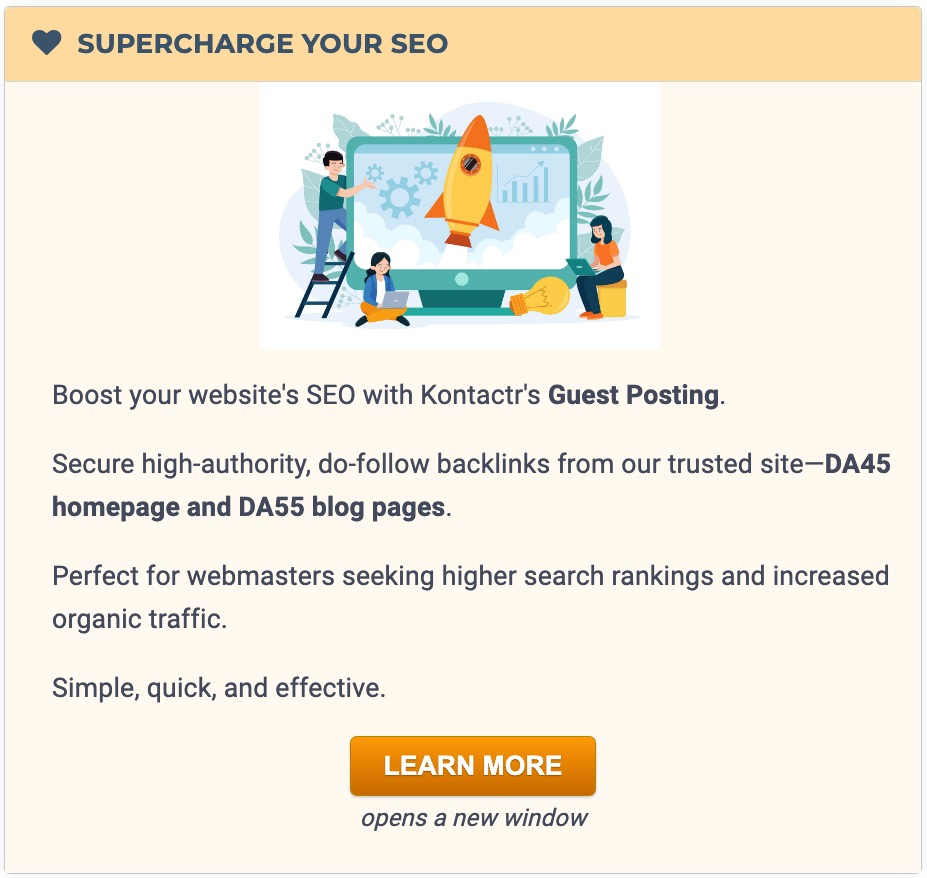
1. The Basics of Consumer Psychology
Consumer psychology explores how people decide:
- What to buy
- Where to shop
- And even how much they’re willing to pay
At its core, it’s the study of the cognitive and emotional processes behind purchasing behavior. Understanding this can provide valuable insights for businesses looking to tailor their marketing efforts.
One critical concept is the distinction between conscious and subconscious decision-making. While consumers believe they’re making rational choices, many decisions are driven by automatic, unconscious processes influenced by emotions, past experiences, and social context.
Recognizing this opens up opportunities for creating impactful messaging.

Maslow’s hierarchy of needs is a psychological theory proposed by Abraham Maslow that explains human motivation as a progression through five levels of needs, often depicted as a pyramid.
At the base are physiological needs—essentials like food, water, and shelter.
Once these are met, individuals seek safety needs, such as personal security, health, and financial stability.
The third level involves social needs, focusing on relationships, love, and belonging.
Above this are esteem needs, which center on self-respect, recognition, and achievement.
At the top of the hierarchy is self-actualization, where individuals strive to reach their full potential and pursue personal growth.
Maslow believed people are motivated to satisfy lower-level needs before addressing higher ones, though the process can vary depending on individual circumstances. This framework is widely applied in fields like marketing and organizational behavior to understand and influence human decision-making.
Additionally, factors such as cultural norms, personal values, and even cognitive biases shape consumer behavior. For instance, the principle of reciprocity—a psychological tendency to return favors—can be utilized to enhance customer engagement.
Free samples, discounts, or exclusive perks tap into this fundamental human tendency.
Understanding consumer psychology isn’t manipulation; it’s about aligning your messaging with how people naturally process information and make decisions.
2. The Role of Emotions in Decision Making
Emotions play a massive role in shaping consumer behavior.
When faced with a choice, feelings often guide decisions more than logic or reason. Think about how a heartfelt advertisement for a charity tugs at your emotions, motivating you to donate, even if it wasn’t initially planned.
Positive emotions like joy, trust, or excitement create lasting impressions.
A happy customer is more likely to share their experiences and recommend your brand to others. Conversely, negative emotions such as fear or urgency can be leveraged strategically. Limited-time offers, for example, tap into the fear of missing out (FOMO), prompting quicker decision-making.

Brands like Coca-Cola and Nike excel in emotional branding, tying their products to feelings of happiness, accomplishment, or belonging. Their campaigns evoke specific emotional responses, building long-term loyalty and connection with their audiences.
By focusing on how your product or service makes consumers feel, you can differentiate yourself in crowded markets. People might not remember every feature of your product, but they’ll remember how it made them feel.
3. The Power of Social Proof and Authority
Have you ever chosen a restaurant because it had glowing reviews or purchased a product labeled as a bestseller?
This is the power of social proof.
People often look to others for guidance, especially in situations where they feel uncertain. Marketers who leverage this principle can influence consumer choices effectively.

Displaying customer testimonials, reviews, or case studies adds credibility and builds trust. Social proof works even better when it comes from relatable sources—other customers, influencers, or respected industry experts.
Platforms like Amazon and Yelp thrive on this principle, influencing millions of decisions daily.
Similarly, authority plays a crucial role in guiding consumer behavior. Endorsements from professionals or experts in a field can significantly impact decisions. A skincare product recommended by dermatologists, for instance, feels more trustworthy than one without any backing.
Combining social proof with authority creates a powerful tool to influence buying behavior while building trust and credibility.
4. Scarcity, Urgency, and Their Impact
The principle of scarcity is a well-known psychological driver of demand.
When people perceive that something is in limited supply, its value automatically increases in their minds. Adding a sense of urgency amplifies this effect, encouraging consumers to act quickly.
E-commerce platforms often display phrases like
Only 3 left in stock
or
Sale ends in 2 hours

These tactics play on the fear of missing out, nudging customers toward completing their purchase before it’s too late. This strategy is particularly effective for flash sales and limited-edition products.
While scarcity and urgency can drive conversions, they must be used authentically. Overusing these tactics can erode trust if customers realize the claims aren’t genuine. The key is to ensure that your offer truly aligns with the messaging, creating a sense of exclusivity and urgency that feels real.
For example, a travel company promoting a limited number of spots for a guided tour can appeal to both logic and emotion, leveraging scarcity and urgency to close the sale.
5. Building Trust Through Authenticity

Trust is the cornerstone of any successful business relationship.
In a world where consumers are increasingly skeptical of advertising, building genuine authenticity is more important than ever. People want to feel connected to the brands they support, and authenticity fosters that connection.
One way to build trust is through transparency. Sharing your brand’s story, values, and even challenges helps humanize your business.
For example, brands like Patagonia openly communicate their sustainability efforts, even highlighting areas for improvement. This honesty resonates with consumers, reinforcing their loyalty.
Another powerful approach is engaging directly with your audience. Responding to customer inquiries, addressing concerns on social media, and showing gratitude for feedback demonstrates that you value their input. This not only builds trust but also creates a sense of community around your brand.
Additionally, user-generated content, such as photos or reviews shared by customers, can enhance your brand’s authenticity. When people see real users benefiting from your products or services, it adds a layer of relatability that traditional advertising often lacks.
Authenticity isn’t just a buzzword—it’s a competitive advantage in building lasting customer relationships.
6. Practical Applications for Marketers
Armed with an understanding of consumer psychology, marketers can implement targeted strategies that resonate with their audiences.
Below are some actionable tips to apply the concepts covered in this article:
- Leverage Emotional Appeals: Craft campaigns that evoke specific emotions, such as joy, nostalgia, or hope, to create memorable connections with your audience.
- Showcase Social Proof: Include testimonials, case studies, or endorsements prominently on your website and marketing materials.
- Use Scarcity Wisely: Highlight limited availability or time-sensitive deals to encourage quicker decision-making, but ensure authenticity in your claims.
- Engage Authentically: Foster two-way communication with your audience through social media, email, and other channels to build trust.
- Focus on Storytelling: Share relatable narratives about your brand, your mission, or your customers to foster deeper connections.
By aligning your marketing strategies with the psychological tendencies of your target audience, you create campaigns that not only capture attention but also inspire action.
Conclusion
Understanding consumer psychology is the key to creating meaningful and effective marketing strategies.
By tapping into the emotions, behaviors, and cognitive patterns of your audience, you can craft messages that resonate and drive results.
From leveraging emotions to showcasing social proof, each psychological principle discussed in this article offers actionable insights to enhance your approach. Authenticity and trust remain foundational, ensuring that your audience feels valued and connected to your brand.
As you implement these strategies, remember that ethical marketing is about aligning your goals with the genuine needs and desires of your audience. By doing so, you’ll not only boost sales but also foster loyalty and long-term relationships.
What strategies have you found most effective in influencing your audience’s buying decisions? Share your thoughts in the comments below!

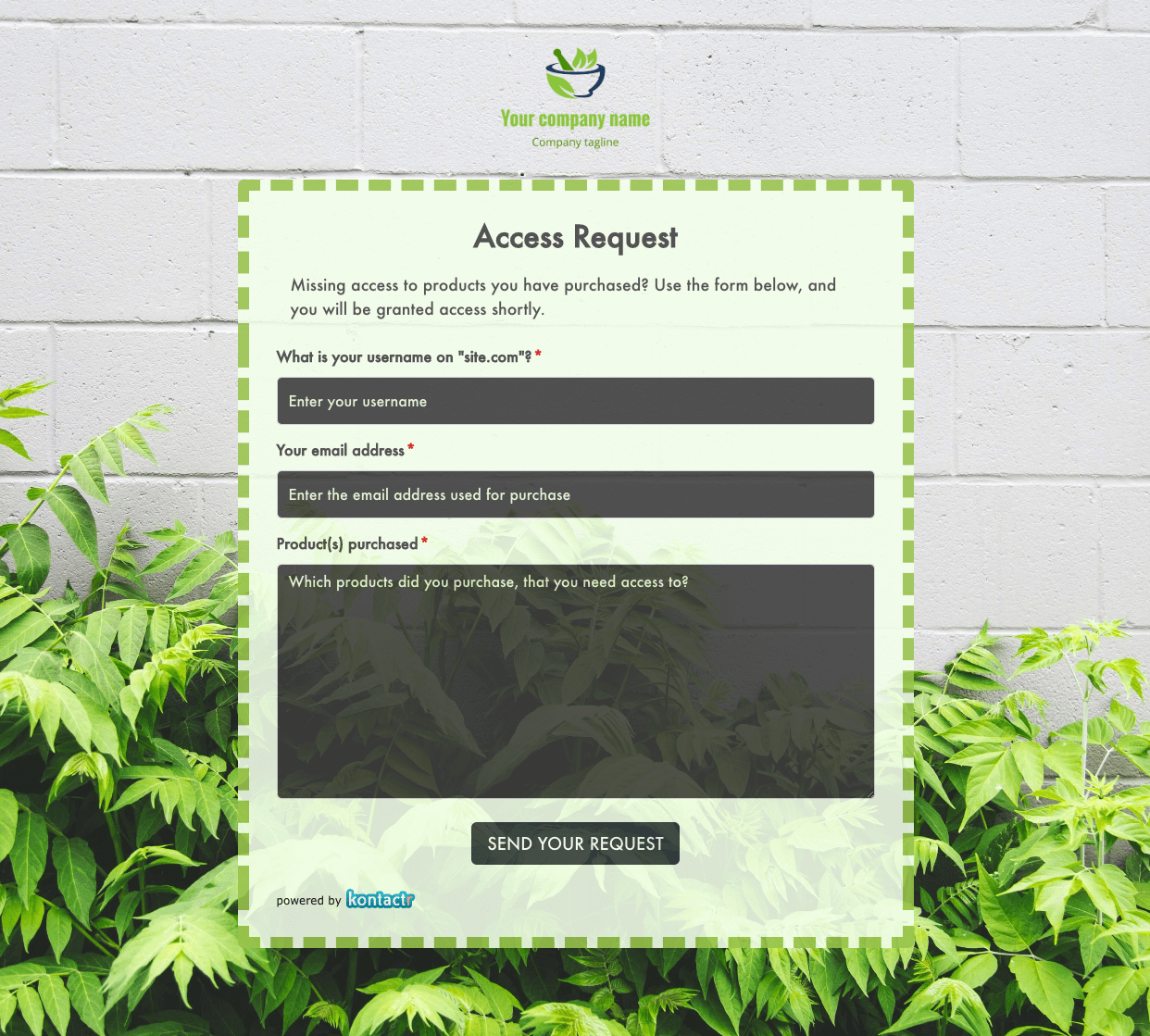 Access Request Form
Access Request Form
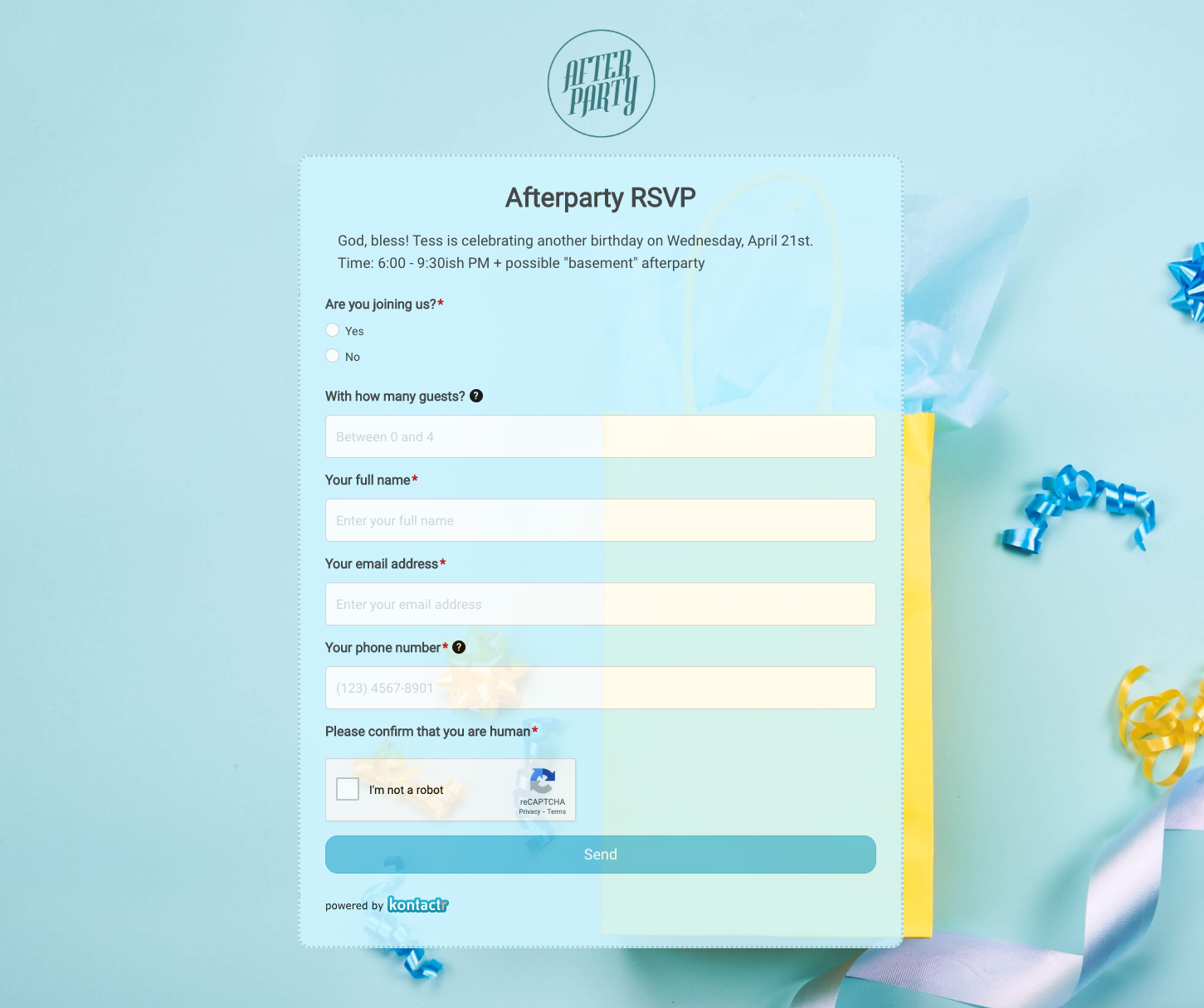 Afterparty RSVP Form
Afterparty RSVP Form
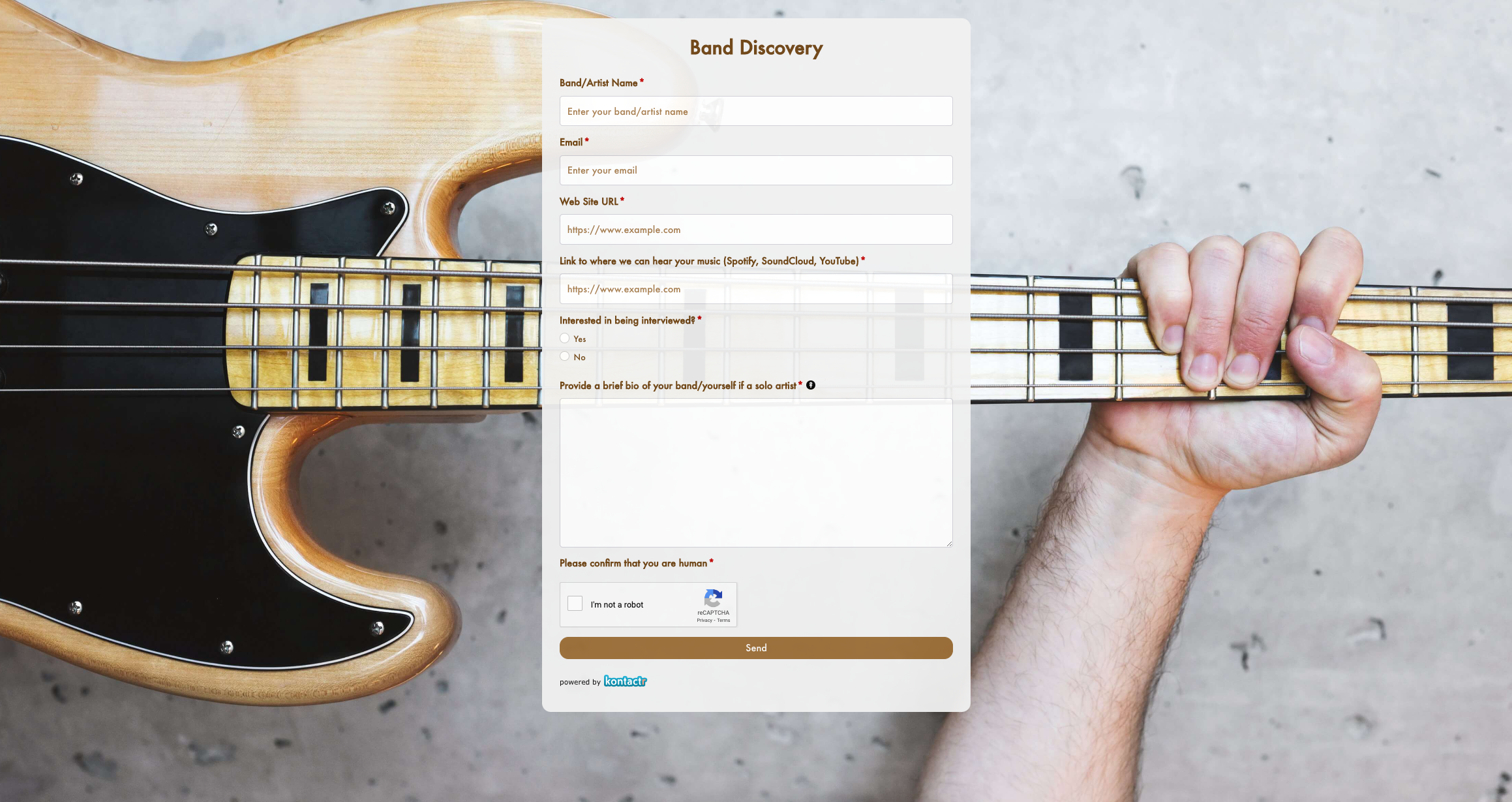 Band Discovery Form
Band Discovery Form
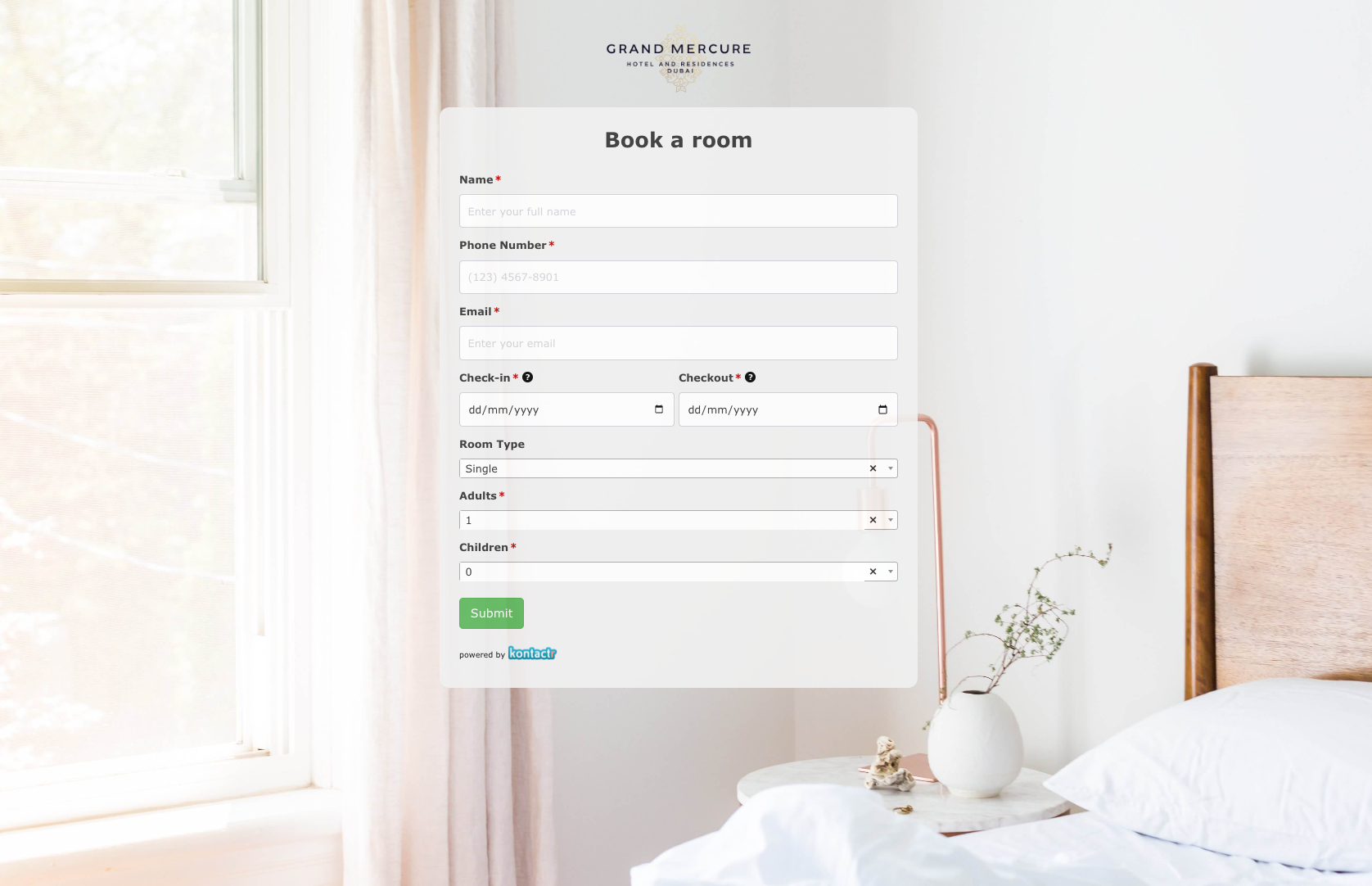 Book a room Form
Book a room Form
 Booking Enquiries Form
Booking Enquiries Form
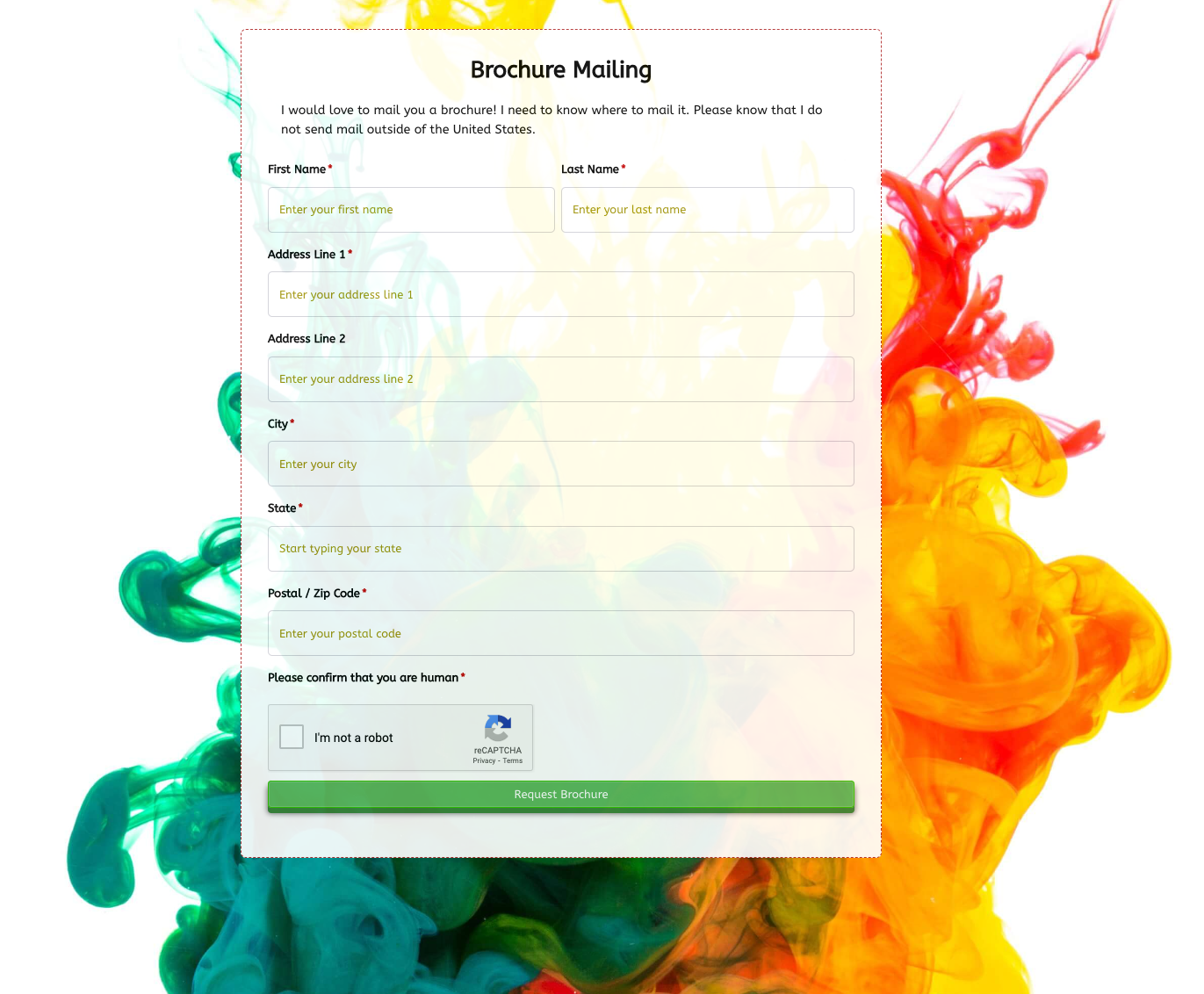 Brochure Mailing Form
Brochure Mailing Form
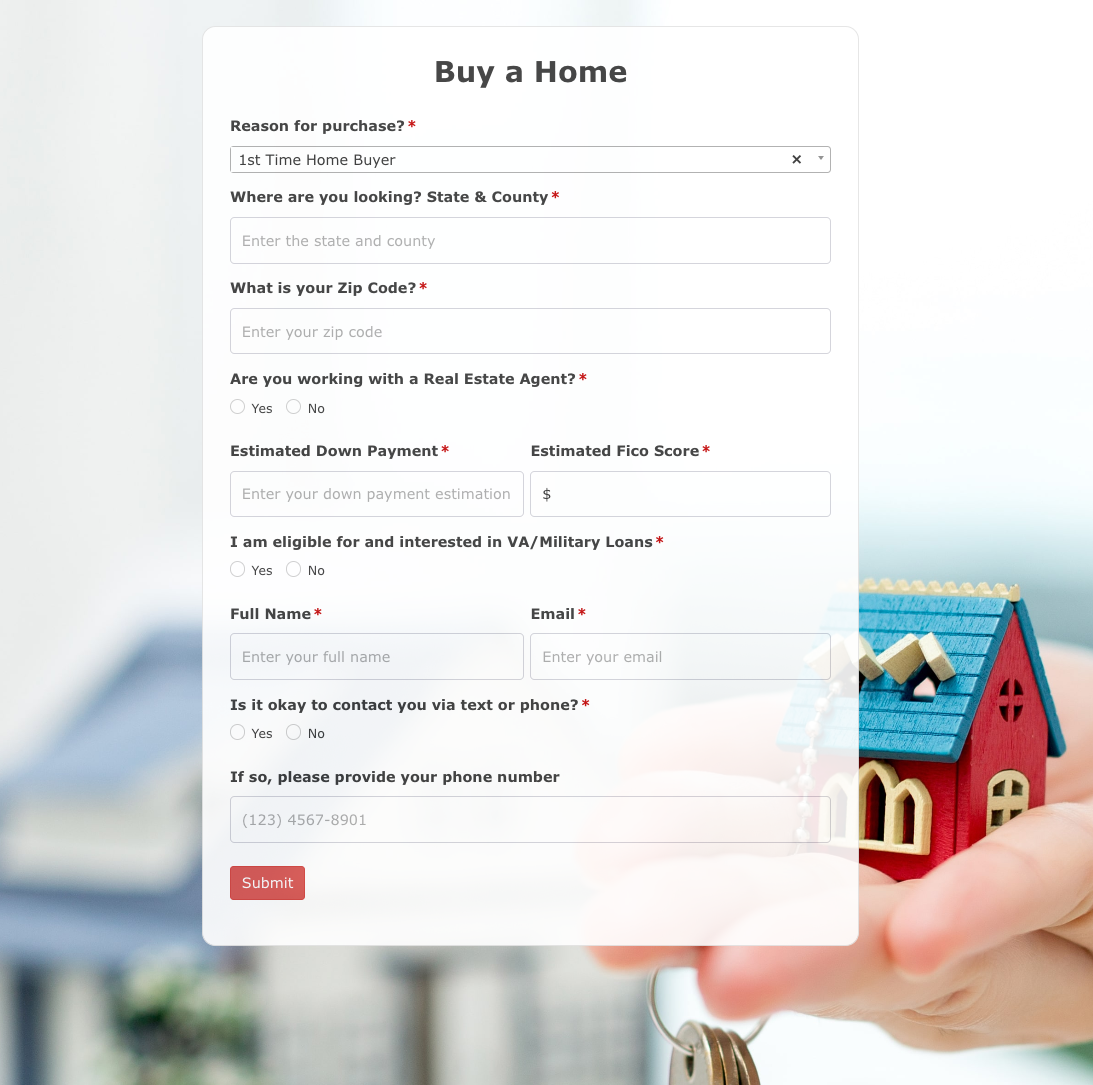 Buy a Home Form
Buy a Home Form
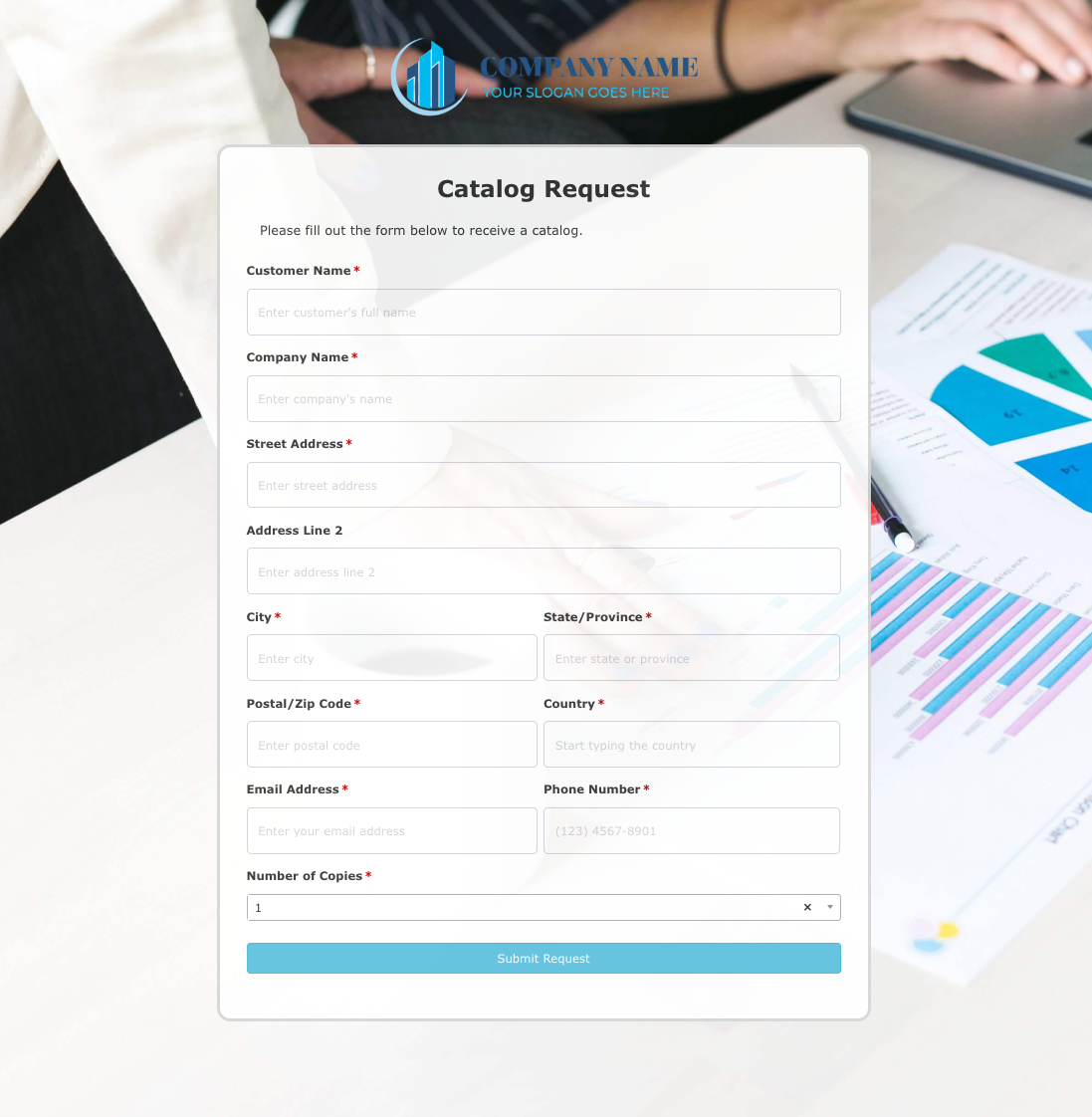 Catalog Request Form
Catalog Request Form
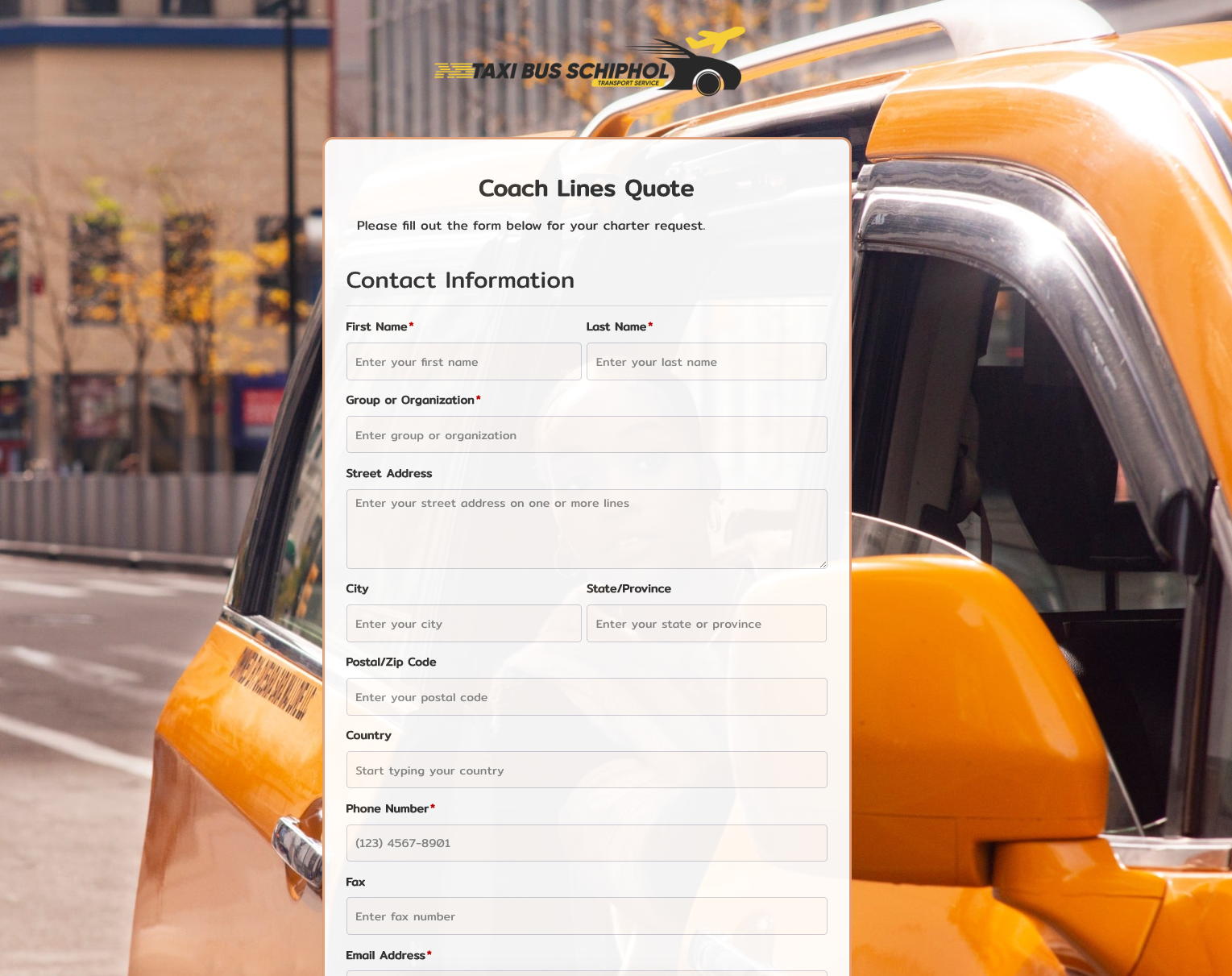 Coach Lines Quote Form
Coach Lines Quote Form
 Contact Us Form
Contact Us Form
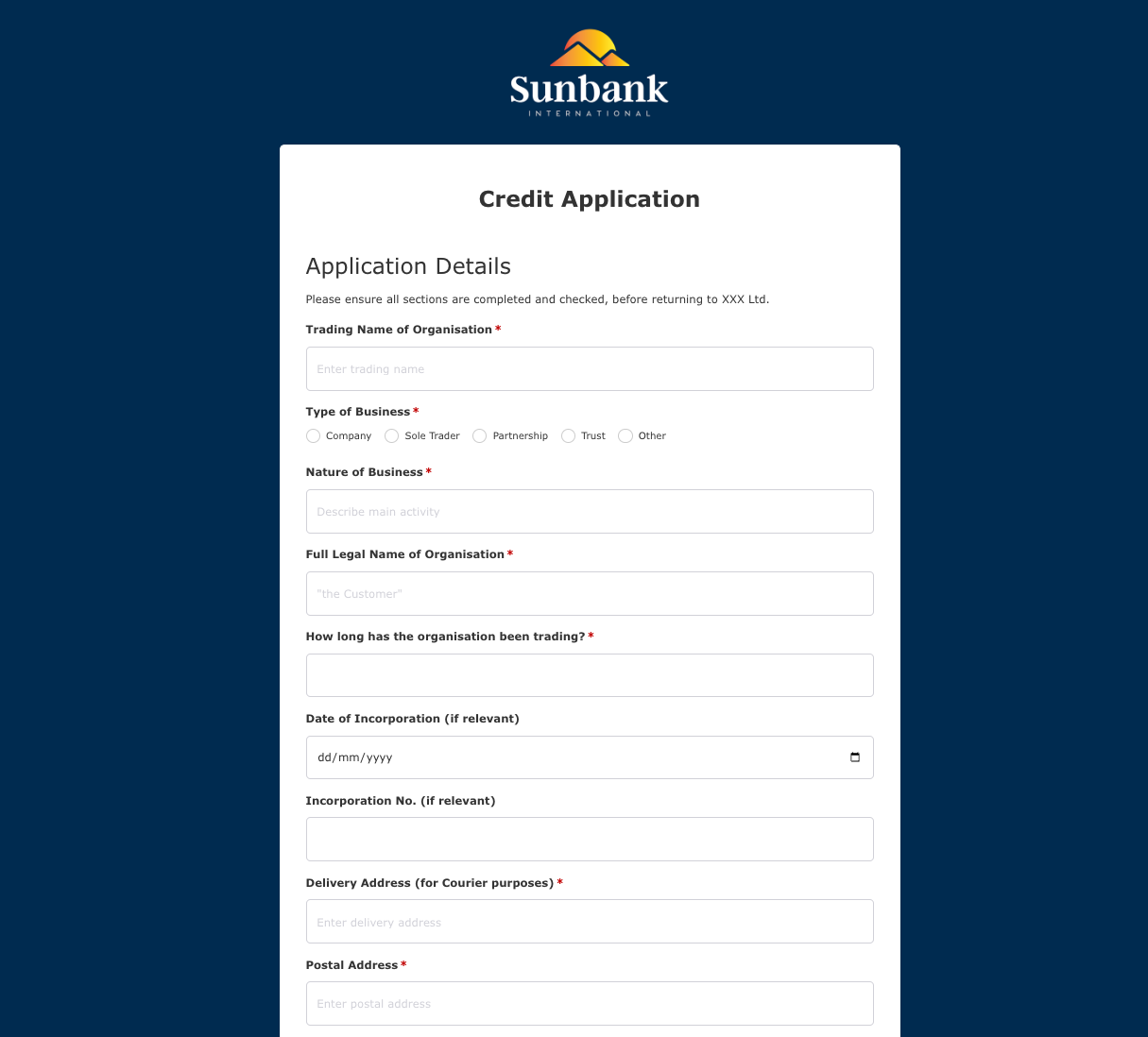 Credit Application Form
Credit Application Form
 Drop me a line Form
Drop me a line Form
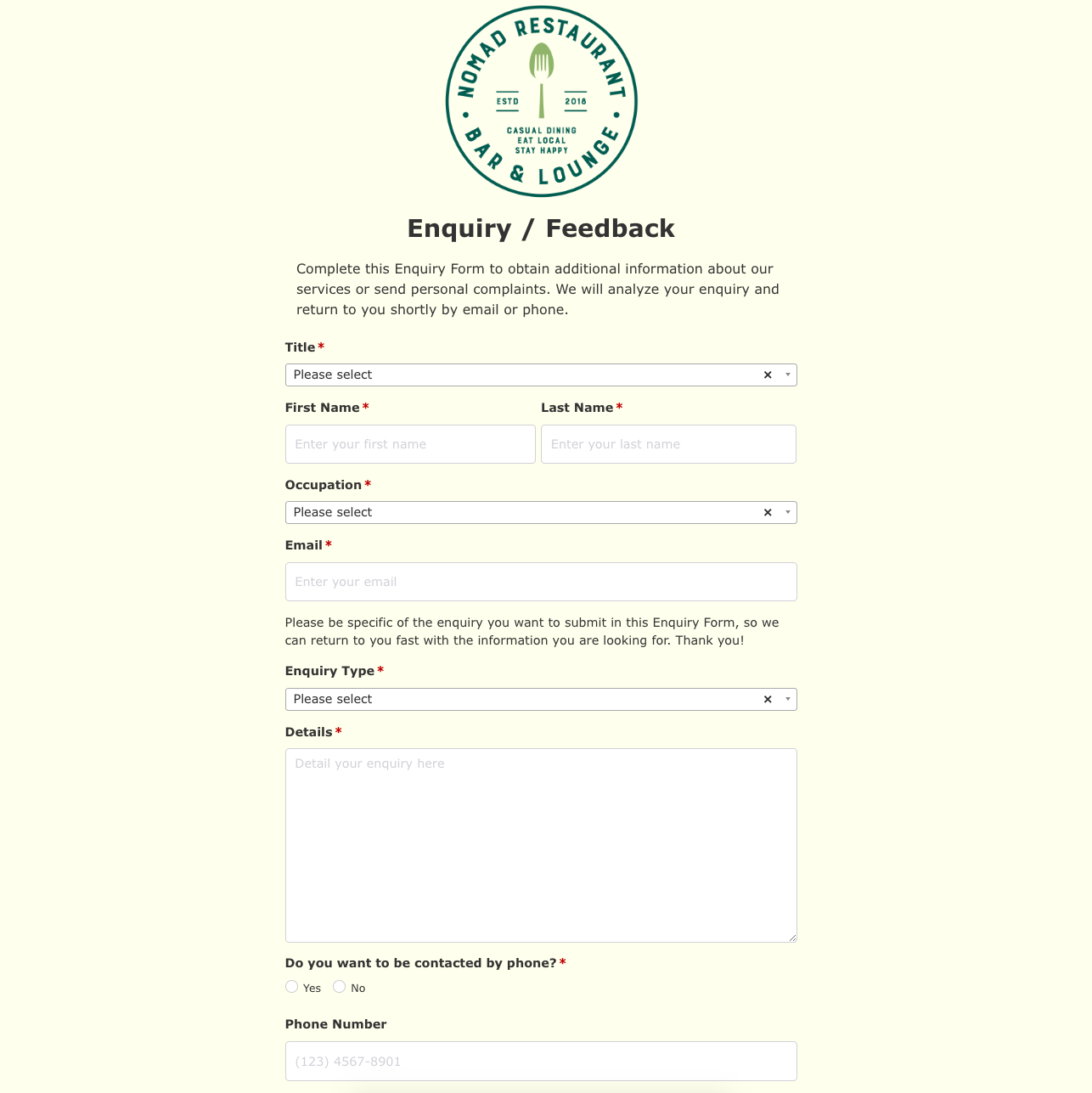 Enquiry / Feedback Form
Enquiry / Feedback Form
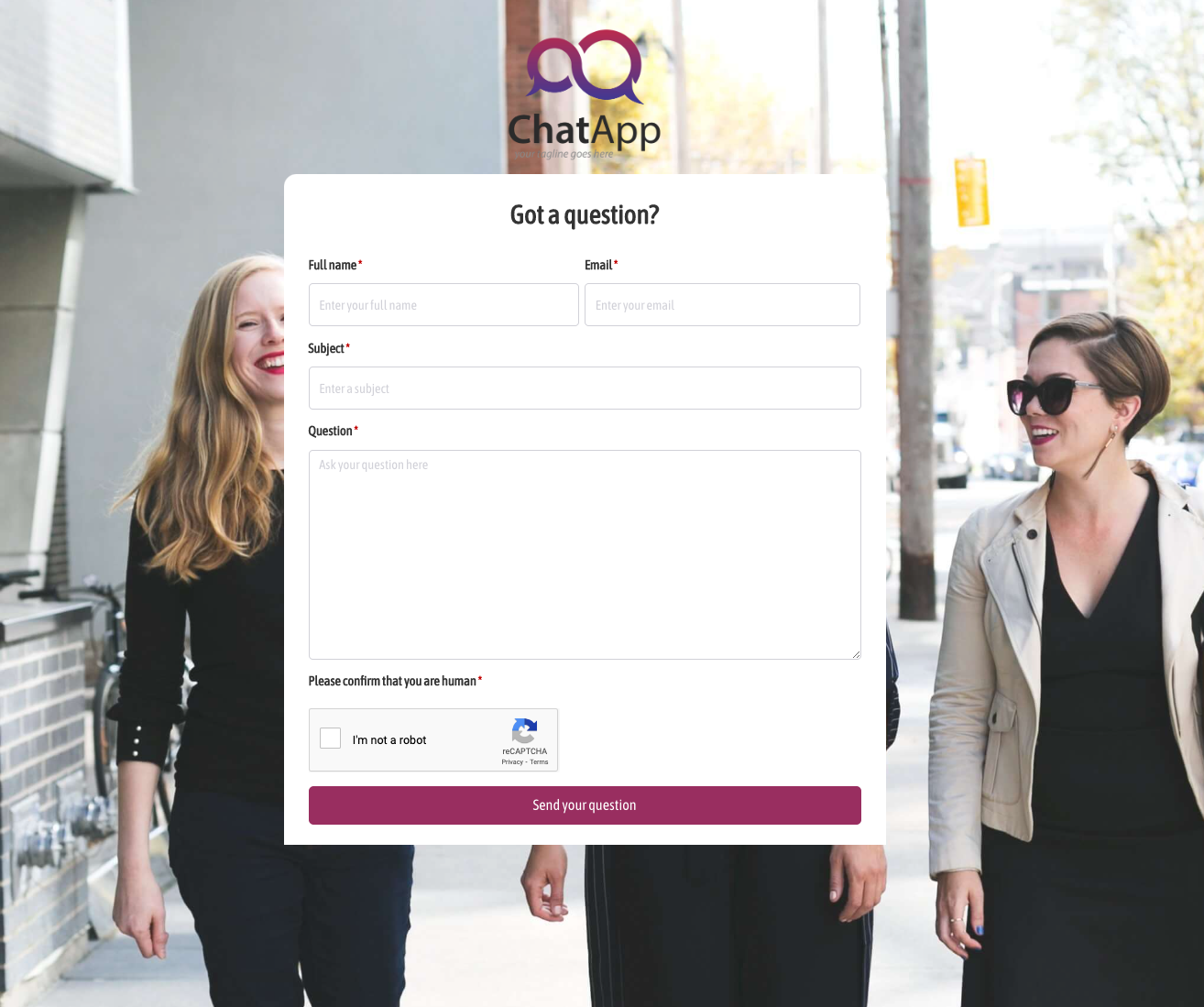 Got a question? Form
Got a question? Form
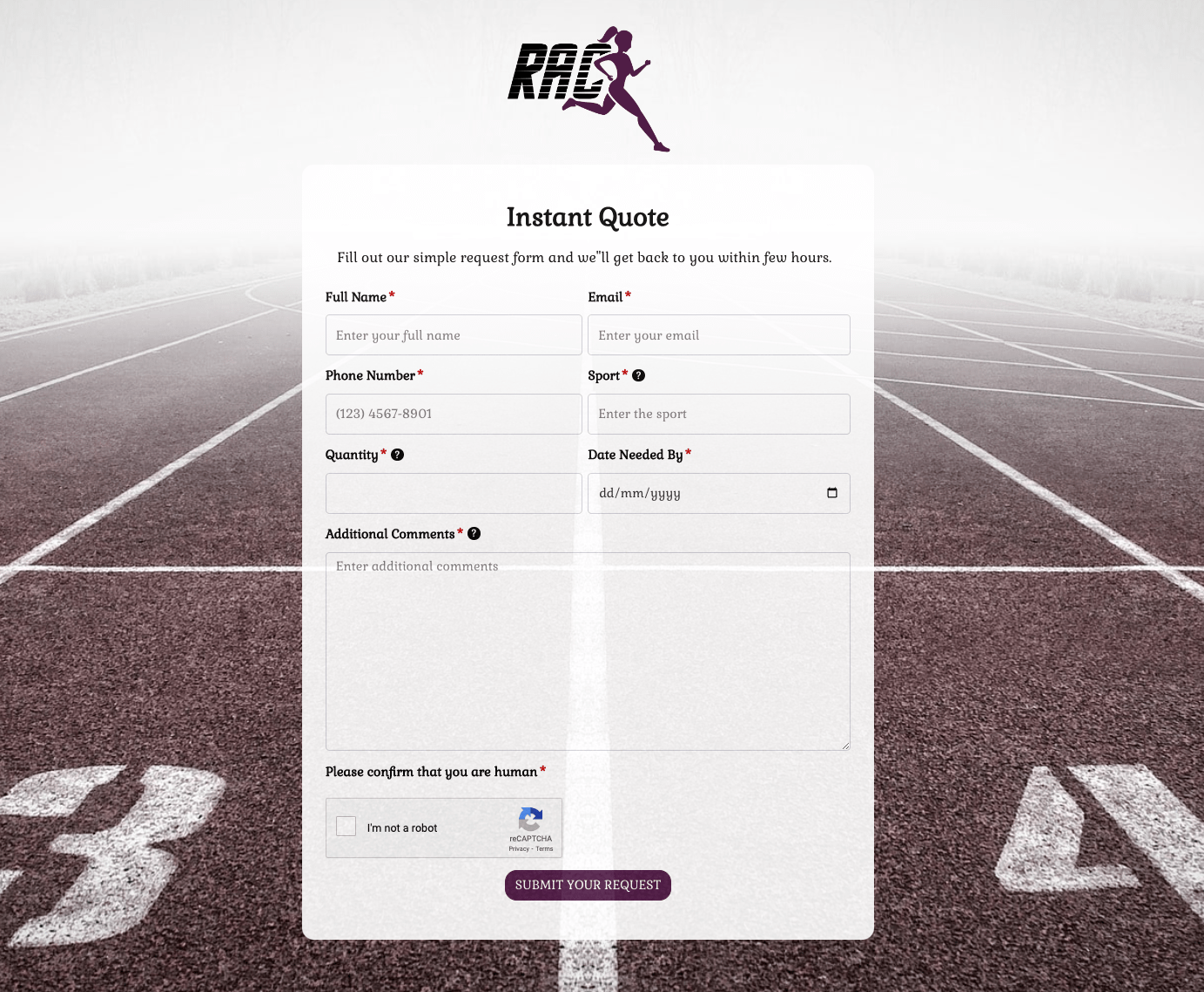 Instant Quote Form
Instant Quote Form
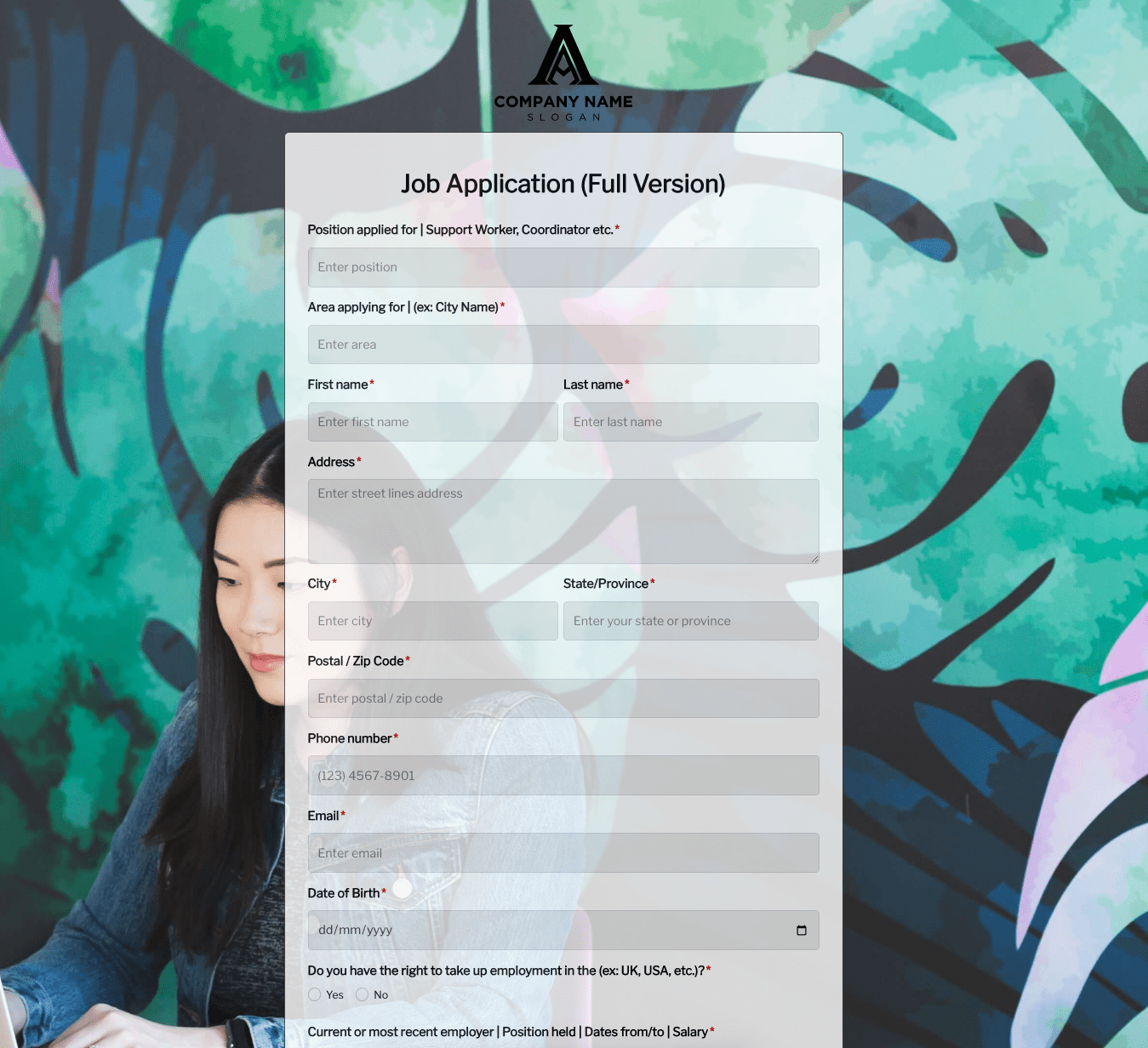 Job Application Form
Job Application Form
 Language & Literacy Lab Form
Language & Literacy Lab Form
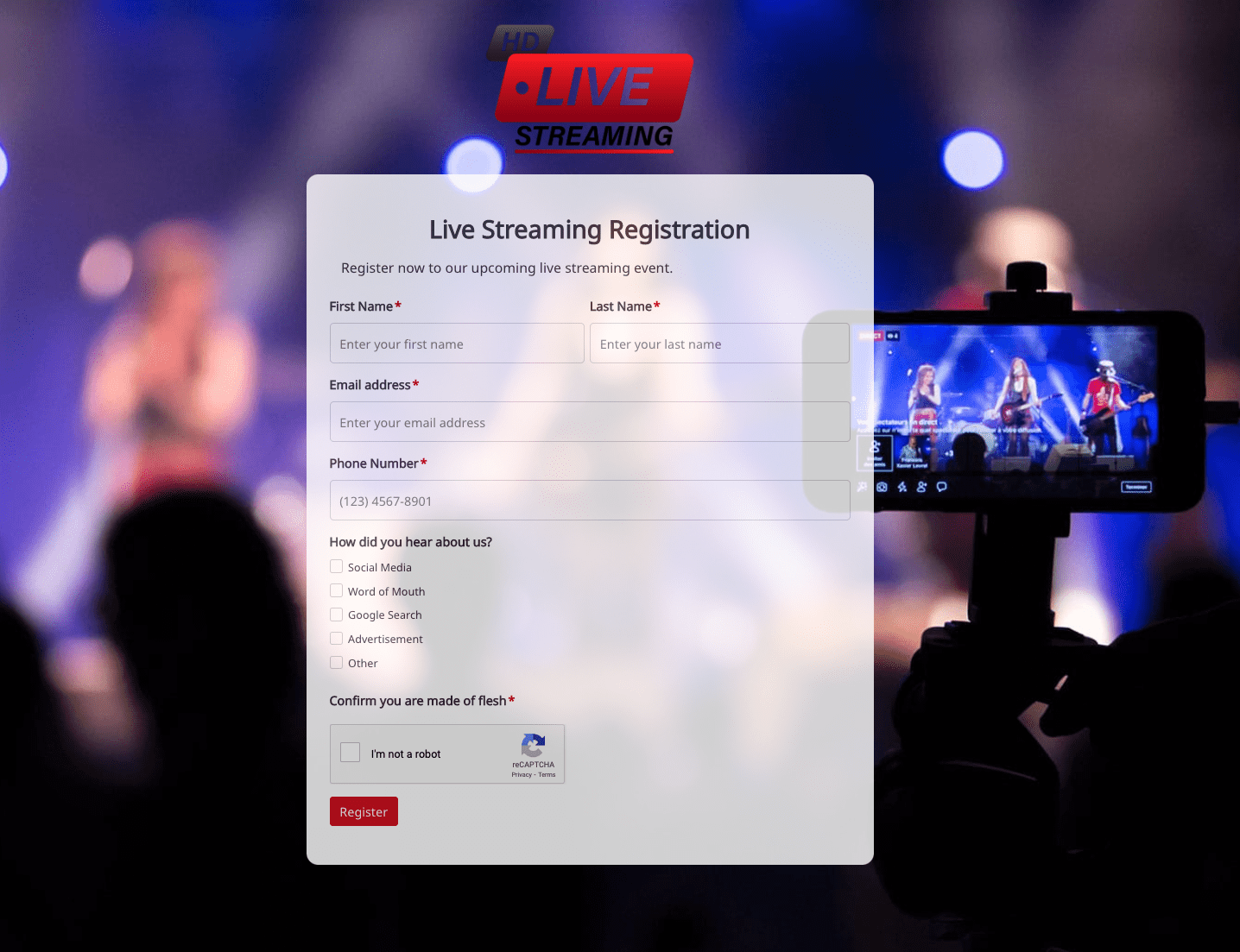 Live Streaming Registration Form
Live Streaming Registration Form
 More Information Form
More Information Form
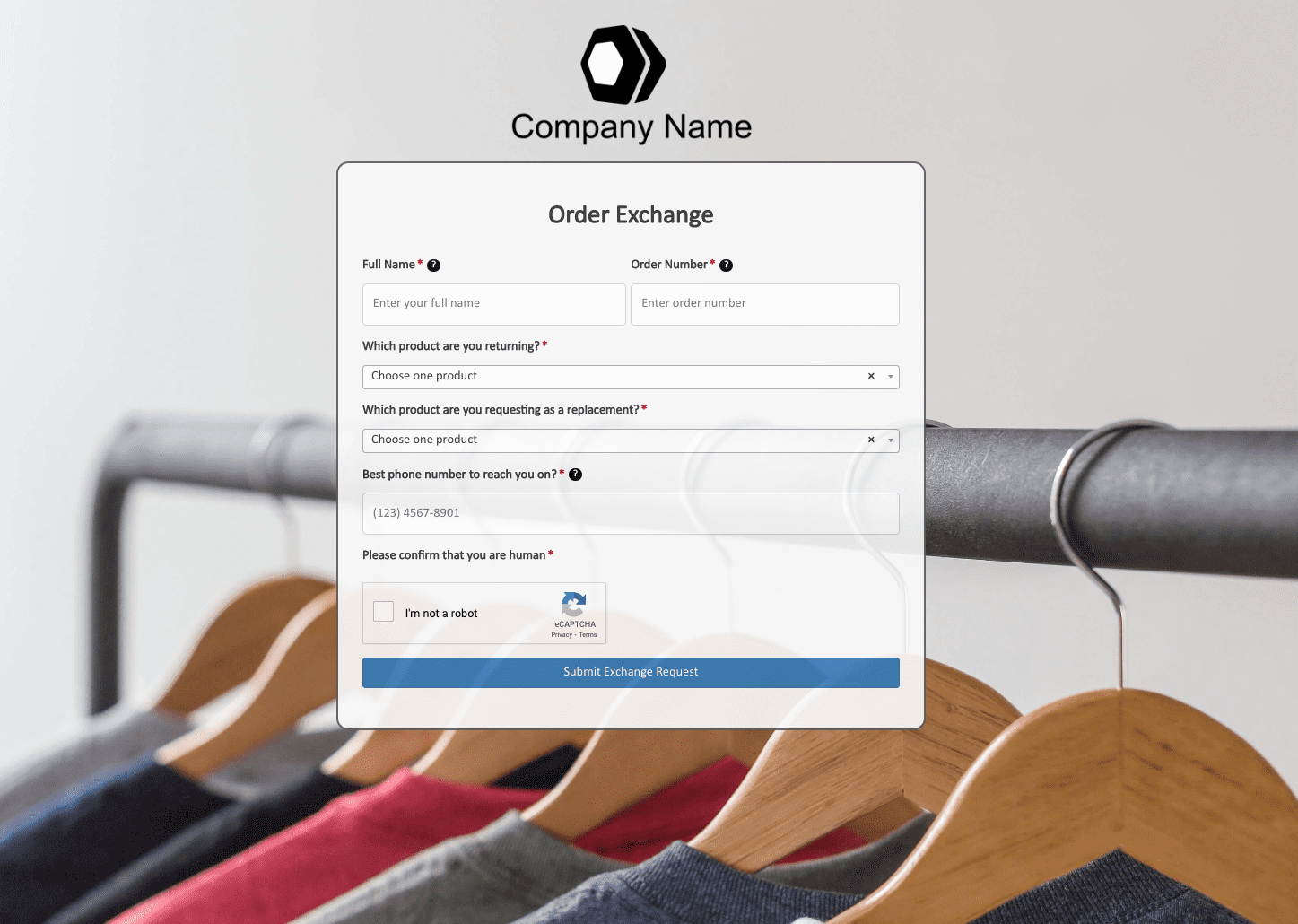 Order Exchange Form
Order Exchange Form
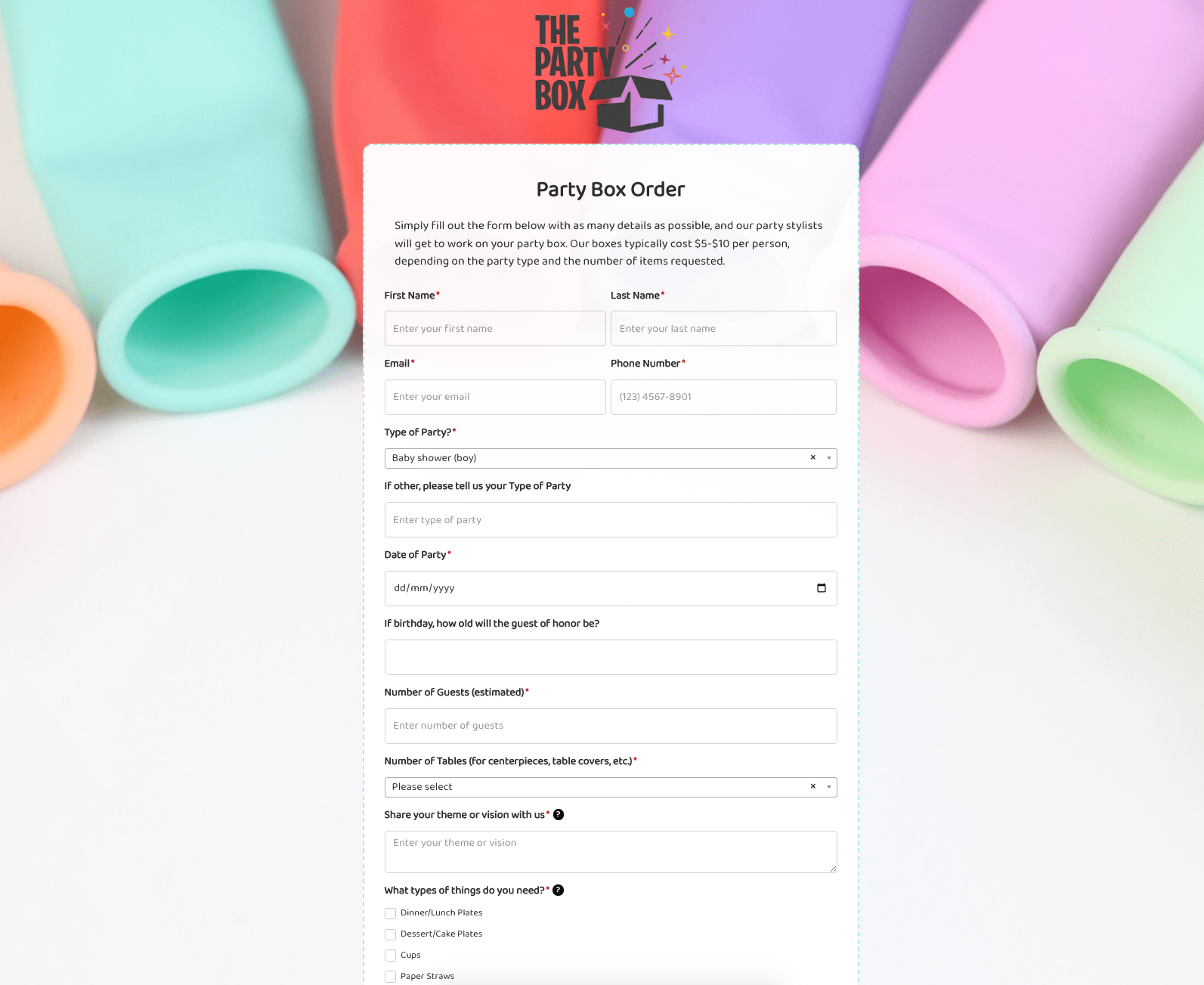 Party Box Order Form
Party Box Order Form
 Pest Control Services Form
Pest Control Services Form
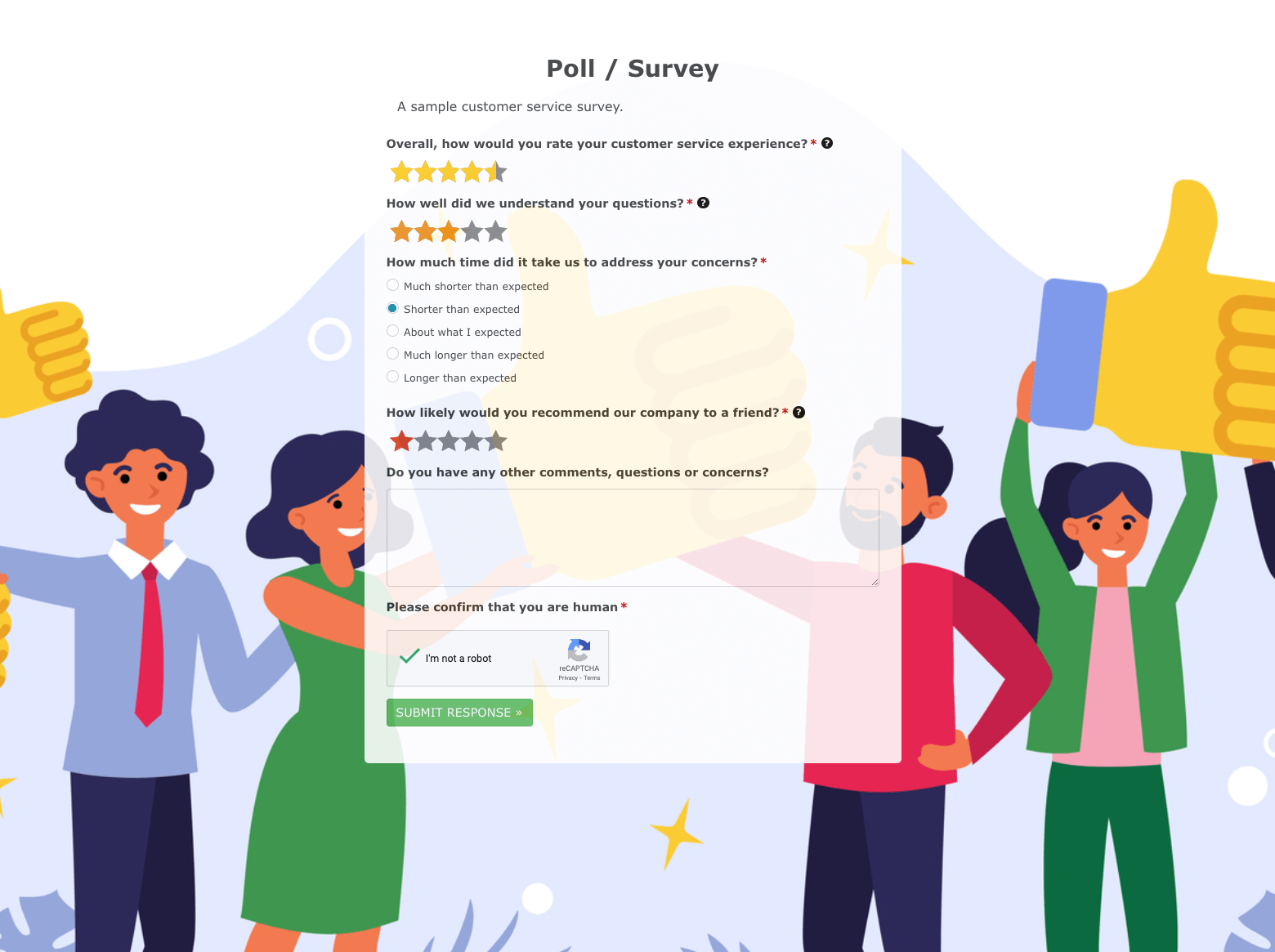 Poll / Survey Form
Poll / Survey Form
 Receive Ebook Form
Receive Ebook Form
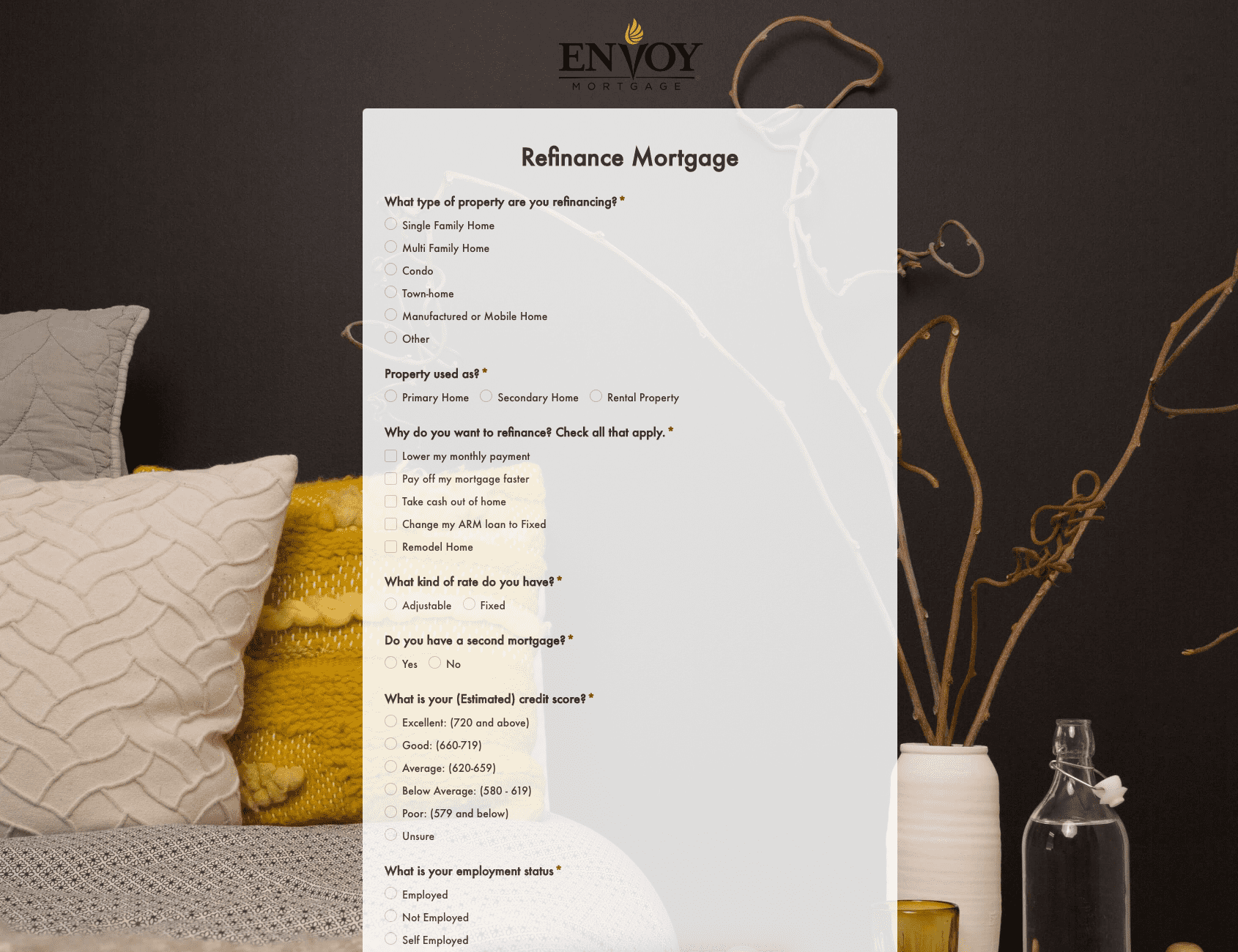 Refinance Mortgage Form
Refinance Mortgage Form
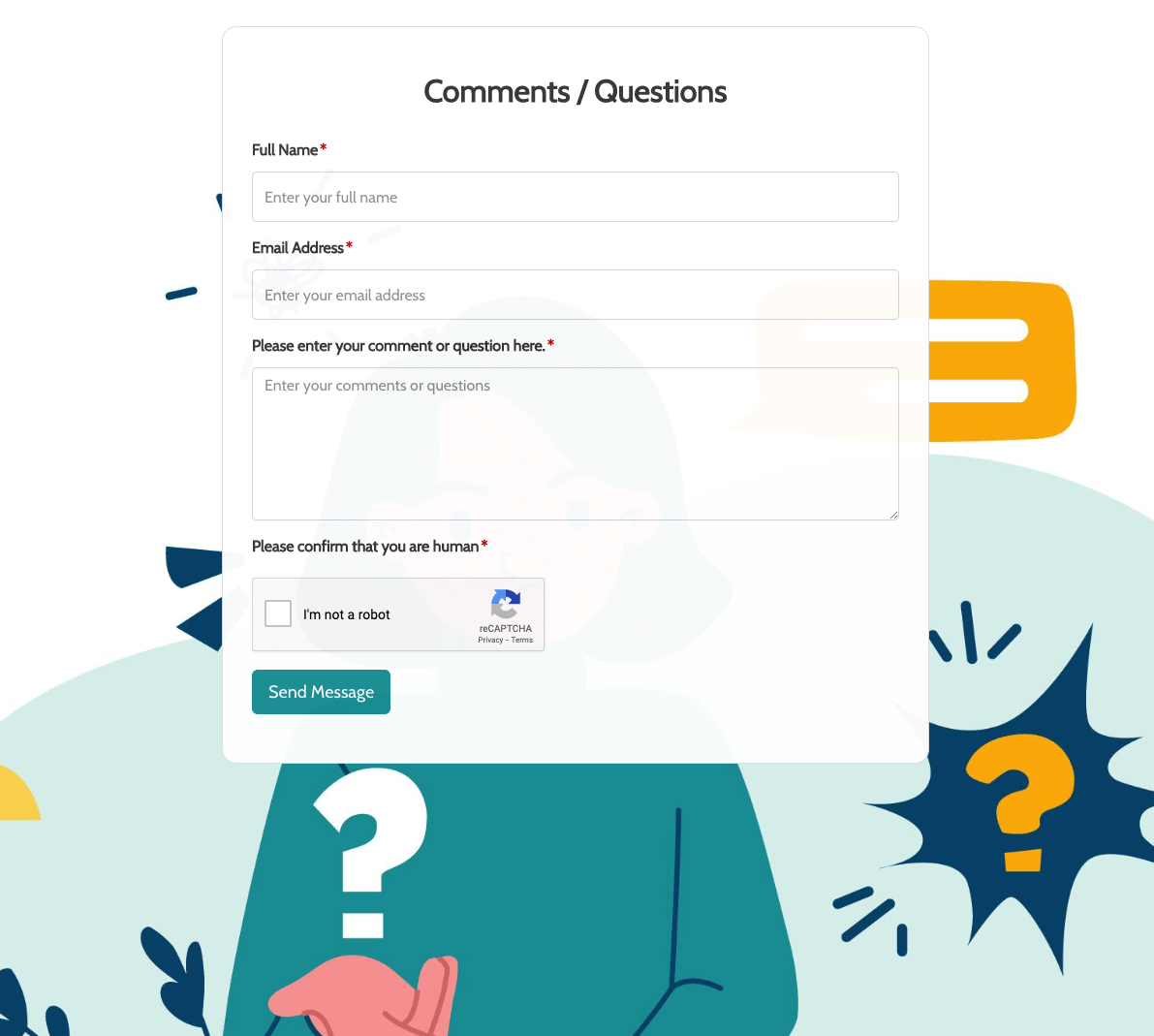 Remarks / Questions Form
Remarks / Questions Form
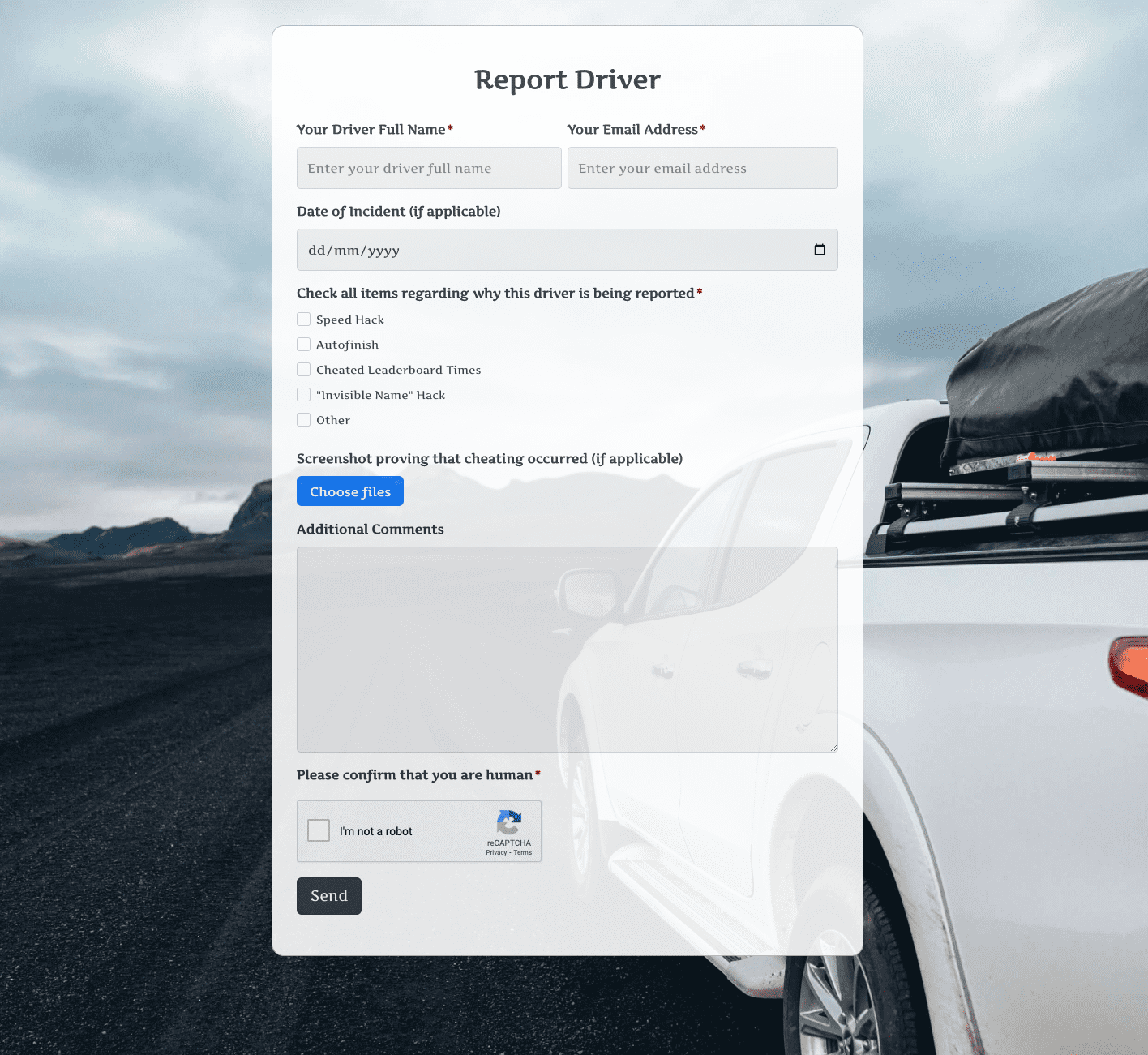 Report Driver Form
Report Driver Form
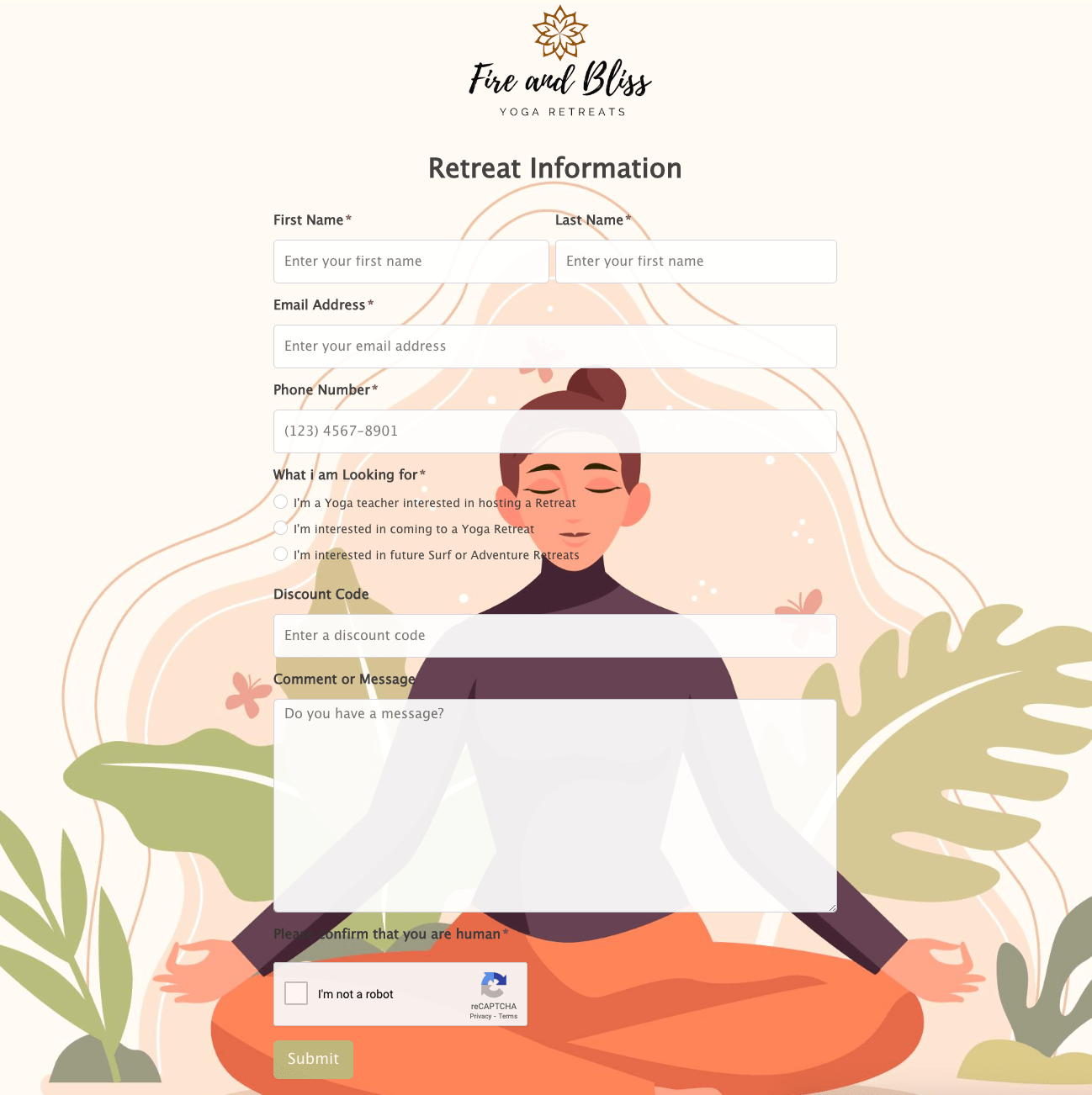 Retreat Information Form
Retreat Information Form
 Service Enquiry Form
Service Enquiry Form
 Skydiving Registration Form
Skydiving Registration Form
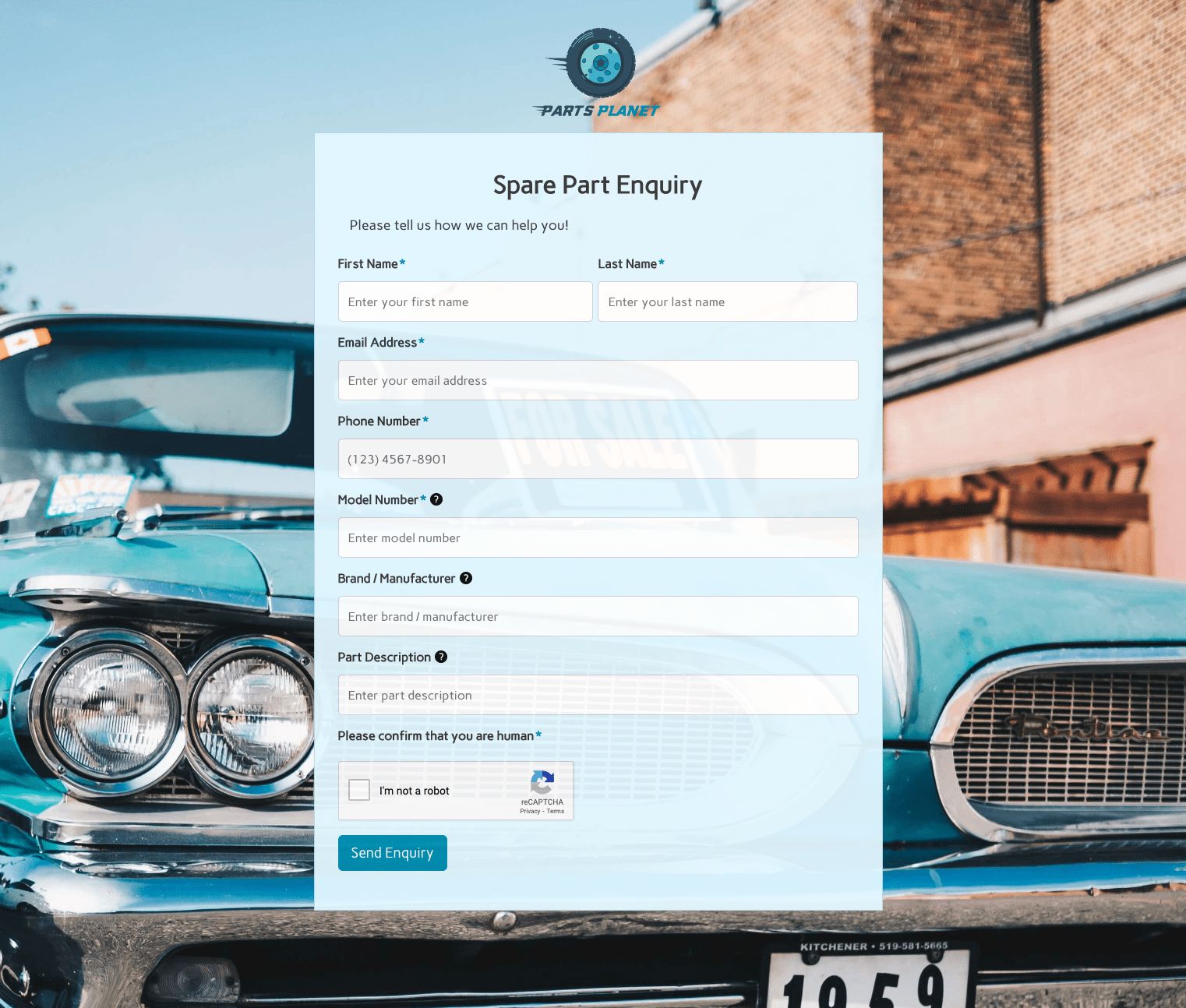 Spare Part Enquiry Form
Spare Part Enquiry Form
 Staff Application Form
Staff Application Form
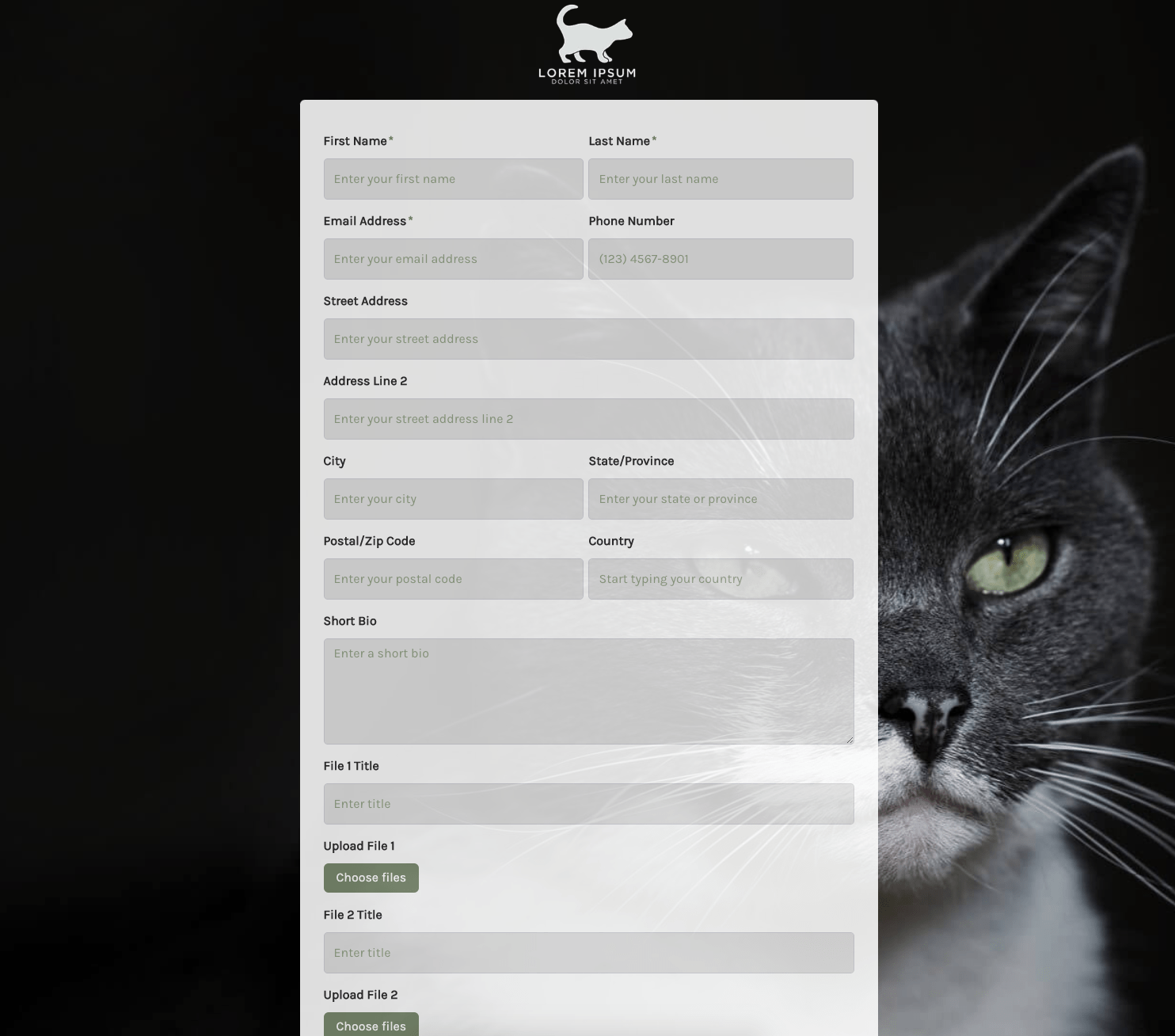 Submission Form
Submission Form
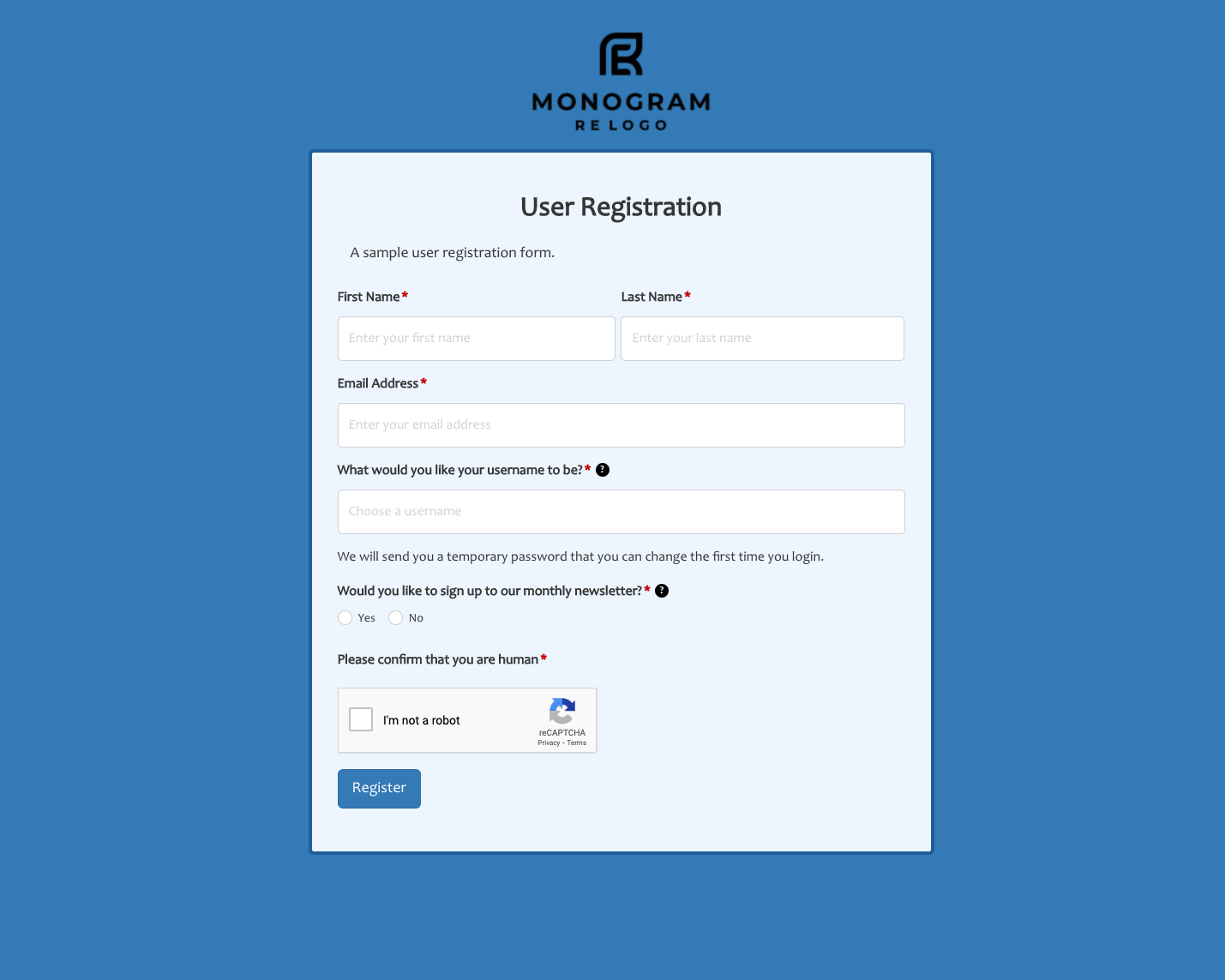 User Registration Form
User Registration Form
 Website Under Construction Form
Website Under Construction Form
 Wedding Photographer Form
Wedding Photographer Form
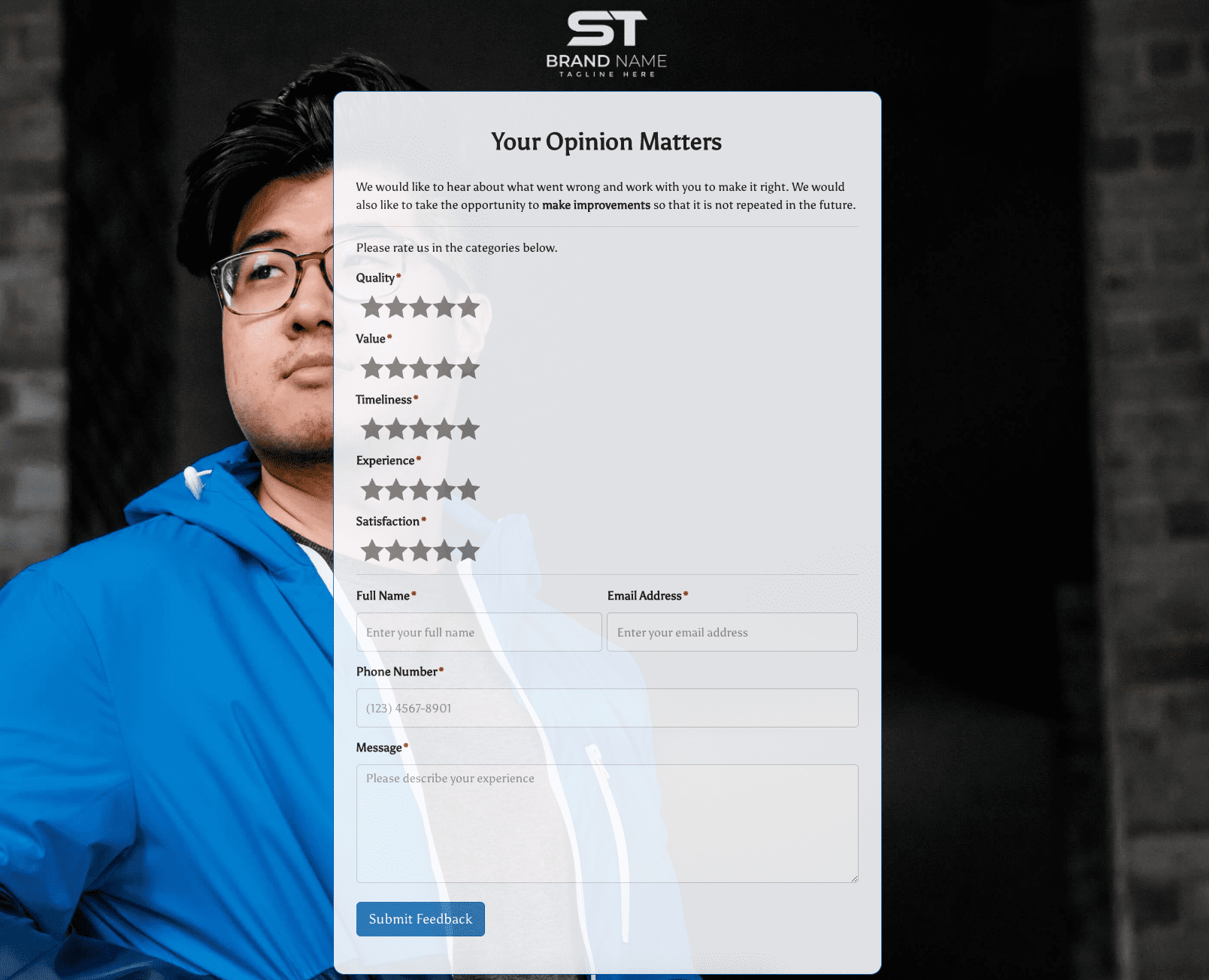 Your Opinion Matters Form
Your Opinion Matters Form
















